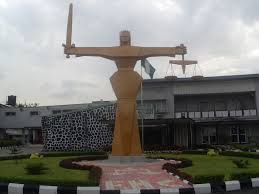
The Administration of Criminal Justice Act should be adopted by all states of the federation
The recent disclosure that it takes 22 years to conclude a case up to the Supreme Court, and between five to 10 years at the state High Courts, has brought to the fore the challenge of criminal justice administration in Nigeria. The Chief Judge of Oyo State, Justice Moktar Abimbola, made the revelation while inaugurating the state’s committee on alternative dispute resolution. But the questions remain: why does it take such a long time to resolve disputes in our clime? What is the situation in other places? How can we fast track the resolution of disputes in our courts?
Even without the questions, it is already very clear that the trouble with the Nigerian judiciary can be located in the entire structure, starting from the court gatemen to bailiffs to clerks to registrars down to messengers and typists—officials who equally play very important roles in the dispensation of justice. Oftentimes, these judicial personnel are responsible for the delay of cases in our courts. For instance, when bailiffs refuse to serve court processes simply because they could not extort money from the litigants/counsels, there is bound to be a delay. That then explains why in many courts, there are several instances when litigants would get to court only to learn that their case files have either been misplaced or lost.
Unfortunately, judicial personnel such as bailiffs and court registrars who play key roles in the administration of justice are often excluded from discussions involving the judiciary in our country. But beyond that, we also support the idea of the alternative dispute resolution mechanism being practiced in some states.
Many Nigerians are hardly involved in interminable litigations in the “regular” courts which are patronised in urban centres. In most rural communities in the country, disputes are largely resolved through mediation and arbitration. The traditional judicial mechanism has worked effectively from time immemorial. It is currently being adopted by the state governments through the introduction of the imported multi-door system and mediation centres.
However, there are also issues that have to be dealt with. For instance, since the Administration of Criminal Justice Act, 2015, has abolished stay of proceedings and other delay tactics, it ought to be adopted by all the states of the federation. A similar initiative is required with respect to civil litigation where interlocutory appeals should be cancelled. Besides, in this age of technology, judges should also no longer be subjected to the hardship of writing longhand.
However, there are also issues that have to be dealt with. For instance, since the Administration of Criminal Justice Act, 2015, has abolished stay of proceedings and other delay tactics, it ought to be adopted by all the states of the federation. A similar initiative is required with respect to civil litigation where interlocutory appeals should be cancelled. Besides, in this age of technology, judges should also no longer be subjected to the hardship of writing longhand.
There are other problems. Instead of appointing retired judges, sitting judges are appointed as members of election petitions tribunals and commissions of enquiry while cases in their courts are adjourned for several months. In some jurisdictions also, judges work in conditions that are not conducive to the speedy determination of cases. Owing to lack of accommodation, judges are compelled to share court rooms. As law libraries are ill-equipped, lawyers are requested by judges to submit photocopies of legal authorities cited by them in their submissions.
The rules of procedure of each of the courts have placed undue emphasis on technicalities which are invariably exploited to delay the hearing of cases. Cases which have been determined by arbitral tribunals constituted by eminent jurists are further subjected to the jurisdiction of regular courts. In some instances, cases which are commenced at the customary/area courts and magistrate courts are also pursued up to the Supreme Courts by aggrieved parties.
These are some of the problems that have to be addressed by critical stakeholders. Painting high court buildings or computerising the court rooms are no solutions to the challenge of justice administration in Nigeria.

No comments:
Post a Comment